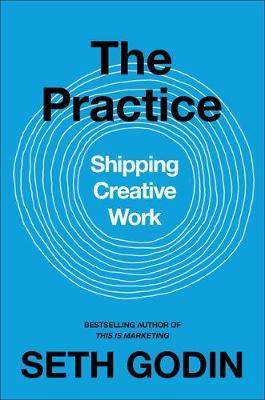This short summary of The Practice: Shipping Creative Work by Seth Godin focuses on the importance of regular and consistent practice in art.
Buy The Practice at: Amazon | Kobo (affiliate links)
Key takeaways
- A professional will practice regularly, regardless of whether they “feel like it” or whether inspiration hits.
- Focus on and trust the practice, which you can control. Don’t focus on the outcome, which you cannot control.
- The whole points of art is that it may not work. Things that do always work are generic things, like recipes, that anyone can do.
- Be generous – your work should be useful to, or change someone.
- You shouldn’t be everything to everyone – find who you want to build for and understand what they want by using empathy.
- Wanting external approval directly undermines your ability to trust yourself because you’ve given this trust to an external actor.
- Add (yet) to your shortcomings – e.g. It’s not good (yet). Everything is a work in progress.
Other useful points
- Get good clients. They demand better work, are more willing to pay for it, and will talk about you and your work to others. In contrast, lousy clients don’t want better work – they want a cheap commodity. [Similar to the idea of getting a good job vs a crap job.]
- Trust is not the same as confidence. Confidence varies from person to person and day to day. It is a feeling and feelings are difficult to measure and control.
- Writing is not the same as talking because writing is organised and permanent – writing puts you on the hook.
- Meetings are a place to hide – they are where we go to wait for someone else to take responsibility.
My thoughts
This was a big disappointment. This isn’t a book, it’s a collection of blog posts, and the order is not particularly well thought out. So I didn’t read this “book” properly and really just skimmed it.
I was also annoyed by how many times he quoted random people throughout to support his points, giving a pretence of authority. Just because one person has said something at some point doesn’t make it true! The worst for me was when he talked about Peter Singer’s example of diving in to save a drowning child and completely missed/omitted the whole point of Singer’s example (he used it to argue that it’s selfish to hold back your work when there’s a chance you have something to offer).
I disagreed with some of his points as well. They seemed very simplistic and motivational speech-y (at least in this book – the arguments may be better fleshed out elsewhere). For example:
- Godin says that good processes repeated over time will lead to good outcomes. But how do you know if your process is good? Is your process ultimately judged by the quality of the outcomes it produces?
- People who take what he says to heart may produce a lot of garbage that benefits no one. While Godin might argue it doesn’t hurt anyone either (“it’s just not for them”) that ignores the transaction costs of sifting through a bunch of crap.
There were a couple of good-ish ideas. I liked the general ideas about focusing on doing the work rather than on the outcome; as well as just doing the work even if you don’t feel inspired. But for general motivation, I’d recommend Austin Kleon’s Show Your Work or Steal Like an Artist over this.
Based on reviews elsewhere, it seems like quite a few Godin fans didn’t like this, which means it might not be a good reflection to his general work. So I’m willing to give Godin one more try.
Buy The Practice at: Amazon | Kobo <– These are affiliate links, which means I’ll earn a small commission if you make a purchase through these links. I’d be grateful if you considered supporting the site in this way! 🙂
If you enjoyed this summary of The Practice, you may also like:

2 thoughts on “Book Summary: The Practice by Seth Godin”
Pretty much my impression of Seth Godin’s books. I’ve read This is marketing and Linchpin and both were massive disappointments. The business/leadership genre has two camps, in my experience. People who have done (and are doing it) and people who supporting their speaking business with books. Seth falls into the later. Often these guys spend half the time telling you why they are smart and why their opinion, which is the sum of their ‘research’, is correct.
Great work on the website. If the publishers and authors weren’t so concerned with page count most of their books could be distilled down to fliers. Nice that someone is doing the work for them 😛
Hi Andrew, thanks for your comment. I have heard good things about Seth’s book “Purple Cow” and was willing to give it a go – it’s one of his earlier books so maybe he had some decent material back then. It’s pretty far down my reading list, though. Lately I’ve been prioritising books by academics and other people who have spent decades building up their expertise before distilling it into just 1 or 2 books to share with the world.